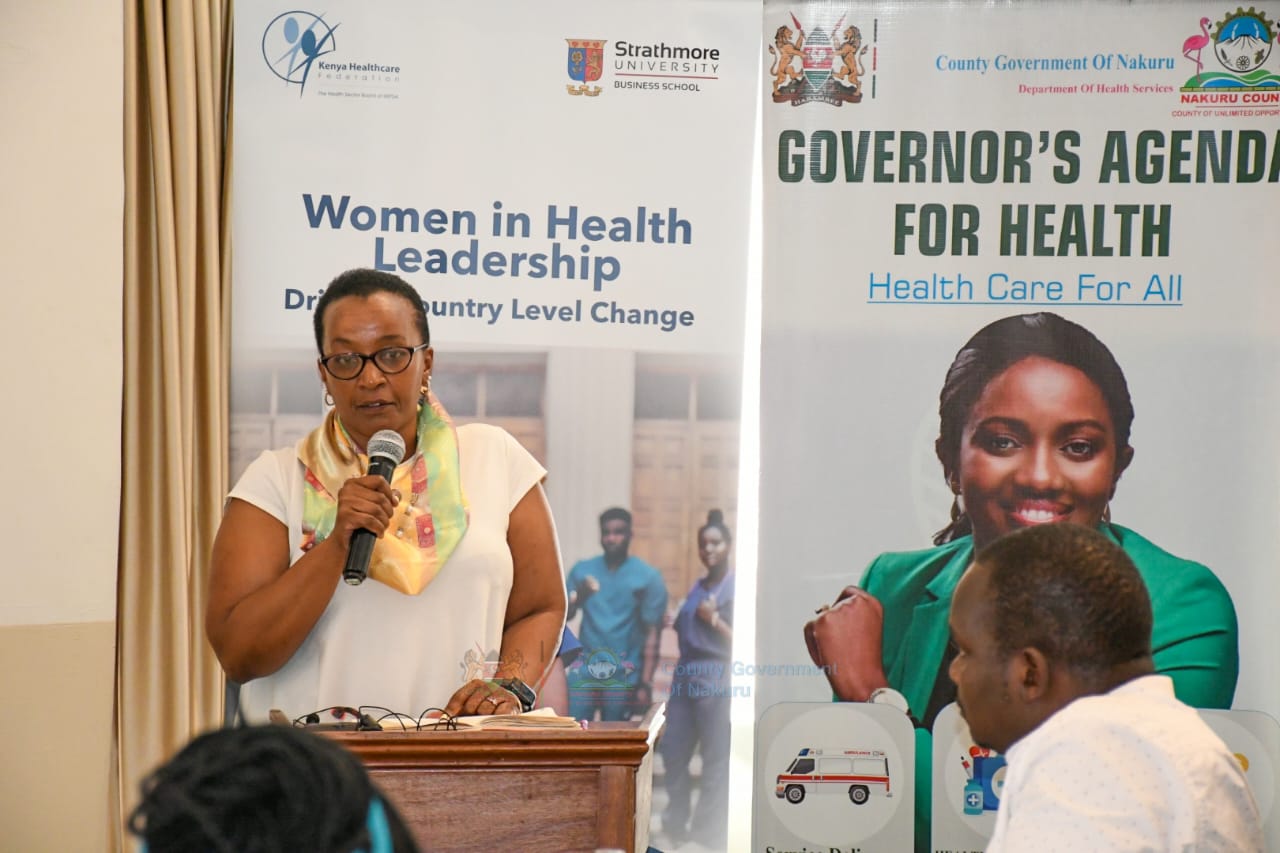
Nakuru County Pioneers Women’s Leadership in Kenya’s Health Sector
Written by Ruth Magak
Nakuru County is at the forefront of a transformative movement to advance women’s leadership in Kenya’s health sector. As the county continues to build on its reputation for gender inclusivity, the Department of Health hosted a forum that brought together women leaders from across the country.
Organized in partnership with the Kenya Healthcare Federation (KHF) and Strathmore University Business School, the forum aimed to address the challenges and opportunities facing women in healthcare leadership.
The forum was a significant milestone, not only for Nakuru but for the entire country. It unveiled key findings from a comprehensive study conducted by Strathmore University Business School, in collaboration with KHF.
This research, which spanned multiple counties, explored how organizational policies, structures, and cultures either hinder or promote the career advancement of women in the healthcare sector. The findings underscored the urgent need for systemic changes to empower more women to rise to leadership positions.
Nakuru County itself stands as a testament to what is possible when gender inclusivity is prioritized. The county’s health sector leadership includes strong female figures such as Roselyn Mungai, the County Executive Committee Member (CECM) for Health, and Joyce Ncece, the Chief Officer for Public Health.
Together, they lead a team that exemplifies gender balance: the County Health Management Team consists of 20 women and 25 men. Additionally, 7 out of the 16 Medical Superintendents in the county are women, and in Level 2 and 3 facilities, women hold 104 in-charge positions compared to 89 held by men. Nakuru also boasts a higher number of female consultants—45 women compared to 39 men—further highlighting the county’s commitment to empowering women in healthcare.
The forum in Nakuru served as a platform to discuss the research findings and their implications for the future of healthcare leadership in Kenya. Participants from the public sector, private industry, and non-governmental organizations engaged in meaningful dialogue on how to implement the recommended systemic changes.
The discussions emphasized the importance of creating organizational environments that support and nurture women’s leadership potential.
As Nakuru County continues to champion these initiatives, it sets a powerful example for the rest of the country. The efforts made here are not just about promoting women to leadership positions; they are about ensuring that women’s voices are integral to the decision-making processes that shape Kenya’s health sector.
This initiative marks a significant step forward in the ongoing efforts to create a more inclusive and equitable healthcare system in Kenya, where women’s contributions are recognized and valued at all levels of leadership.



